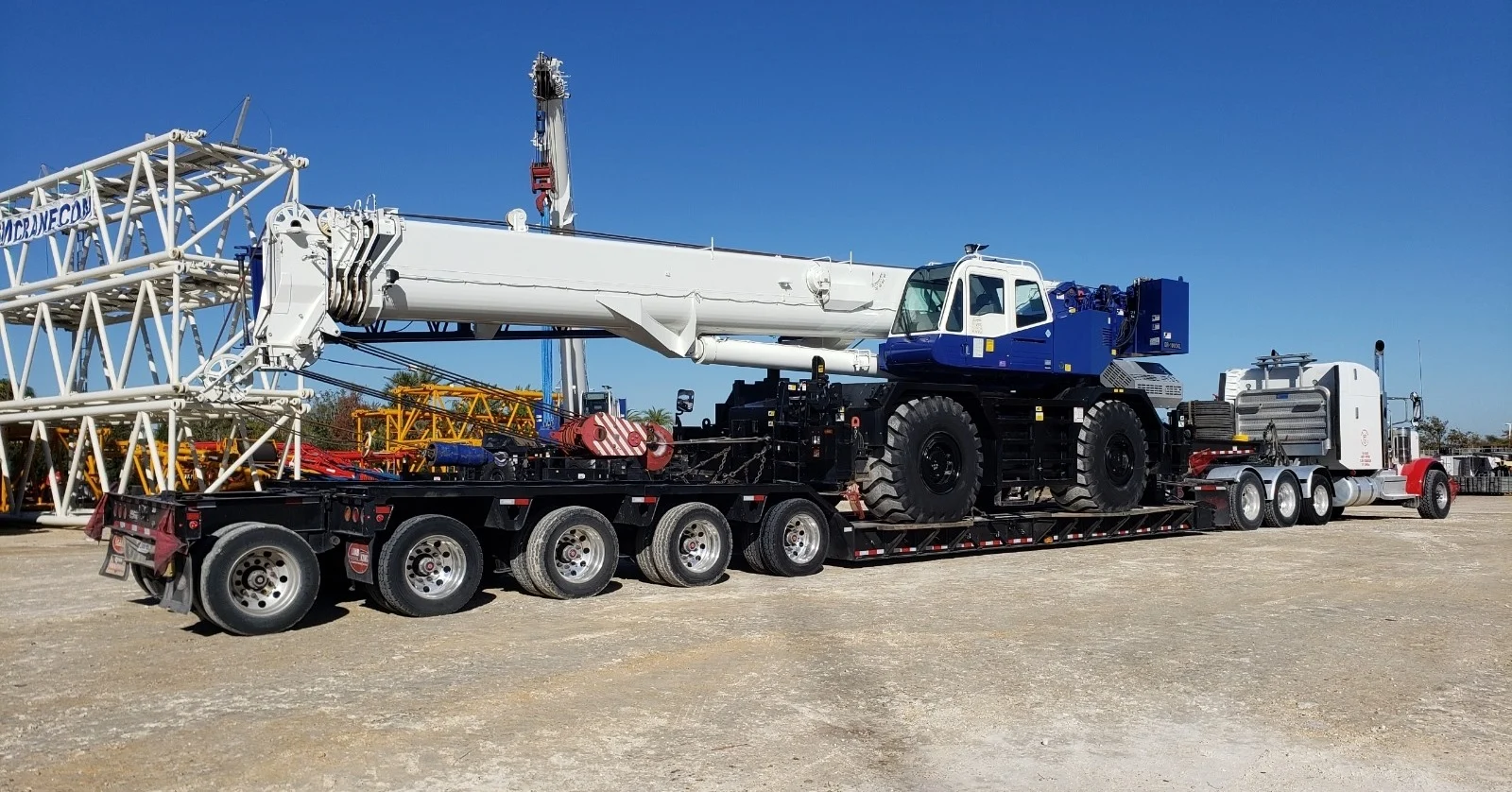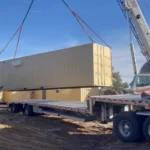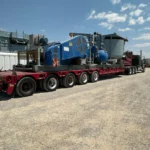Oversize load transport isn’t just another haul—it’s a precision-driven operation that requires meticulous planning, legal compliance, and expert handling. In this blog post, we’ll explore why working with specialist brokers—not general carriers—is critical when transporting oversize freight. Whether you’re dealing with large construction equipment, wind turbine parts, or prefabricated structures, trusting oversized load trucking companies that understand the intricacies of the process is the only path to a safe, cost-effective, and timely delivery.
What is Oversize Load Transport?
Oversize load transport refers to the movement of freight that exceeds the standard legal size and/or weight limits set by federal and state regulations. These shipments usually exceed:
Width: Over 8 feet 6 inches
Height: Over 13 feet 6 inches
Length: Over 48–53 feet (depending on trailer and state)
Weight: Over 80,000 pounds gross vehicle weight
These loads require special permits and transport planning, route planning, and often pilot cars and escort vehicles to ensure public safety and legal compliance.
The Hidden Complexity Behind Oversize Load Shipping
Unlike standard freight, oversize loads bring unique challenges that require in-depth knowledge and planning.
Permitting and Legal Compliance Vary By State
Each state has its own rules about what constitutes an “oversize” load and how it must be handled. Some require:
State-specific permits
Escort vehicles (commonly referred to as oversize load pilot cars)
Travel hour restrictions (many states prohibit night or weekend transport)
Pre-approved route plans to avoid low bridges, weight-restricted roads, and tight turns
🛑 Real-World Example: A 14-foot-tall excavator bound for Louisiana was delayed 3 days due to missed permit requirements that required a modified route and escort vehicle coordination.
Safety Isn’t Optional – It’s Federal Law
Safety in oversize load transport is non-negotiable. The FMCSA mandates proper load securement and display of:
Wide load flags
“Oversize Load” banners
Rotating or flashing amber lights
Failure to comply could lead to fines, cargo damage, or worse—accidents. Only experienced brokers understand how to properly prepare the load and ensure carriers follow regulations to the letter.

Why General Carriers Fall Short
Lack of Regulatory Knowledge
General freight carriers may not be aware of permit lead times, routing restrictions, or the legal width thresholds that trigger permit requirements. That ignorance can cost you time and money.
Inadequate Equipment
Moving oversized freight typically requires specialized trailers like those used in heavy hauling or trailer transport:
RGNs (Removable Goosenecks)
Extendable flatbeds
Multi-axle configurations
General carriers rarely have access to this equipment or the expertise to operate it correctly.
No Pilot Car Network
Oversize loads over a certain size must be accompanied by a certified pilot car or even a police escort. Brokers that don’t specialize in this niche may not have access to a reliable oversize load pilot car network.
The Specialist Broker Advantage
End-to-End Logistics Coordination
Specialist brokers—like Freight Guru—coordinate every element of the move:
Permit applications across multiple states
Scheduling of escort vehicles
Equipment matching based on load specs
Real-time tracking and communication
🎯 Case Study: Freight Guru managed a 120,000 lb transformer move across 3 states with 4 permits, 2 pilot cars, and police escorts—all executed on schedule with zero delays.
Network of Pre-Vetted Oversized Load Trucking Companies
Reputable brokers work exclusively with vetted oversize and overweight trucking companies that meet strict safety and insurance requirements. This eliminates the risk of hiring inexperienced or under-equipped carriers.
Accurate Cost Forecasting
Specialist brokers factor in permit fees, route planning, escort needs, and equipment type. This ensures accurate quotes and avoids surprise charges.
Oversized Load Trucking: A Sector That Demands Expertise
Here’s what you’re really risking if you try to move an oversize load with a generalist:
| Risk | Consequence |
|---|---|
| Incorrect trailer selection | Cargo damage or load rejection |
| Permit delays | Costly downtime and missed deadlines |
| Improper securement | Fines or road accidents |
| Wrong route planning | Bridge strikes or detours |
| No pilot car coordination | Legal violations and trip shutdown |
Oversize freight is not forgiving. The margin for error is razor thin—and the stakes are high.
The Real Cost of Inexperience
A report by the American Transportation Research Institute (ATRI) found that compliance violations (especially in oversize freight) can add 15–25% in hidden costs due to delays, fines, and re-dispatching.
📉 Statistic: Loads delayed due to incorrect permitting cost an average of $2,400 per day, according to FMCSA data.
You can also read about the high cost of inexperience in heavy haul freight on our blog.
The lesson? Hiring a specialist isn’t just about quality—it’s about cost-efficiency.
When to Use a Specialist Broker
If your freight involves any of the following, consult a specialist broker:
Over 8’6″ wide or 13’6″ tall
Weighs more than 80,000 lbs
Needs an RGN trailer or multi-axle configuration
Requires pilot cars or police escorts
Crosses state lines with permit variations
Not sure? Contact Freight Guru for an expert load assessment.
Conclusion: Precision Moves Require Precision Partners
Oversize load transport is a highly specialized process that blends compliance, logistics, and safety. While general carriers may be able to move regular freight, they simply aren’t equipped to manage the unique demands of oversized loads.
By partnering with a specialist broker, you gain:
Expert route planning
Permit management
Access to vetted oversize load trucking companies
Pilot car coordination
Accurate pricing and timely delivery
If you’re ready to move oversize freight without the headaches, delays, or risks, trust the professionals at Freight Guru. We’re more than a freight brokerage company — we’re your oversize freight solution.





